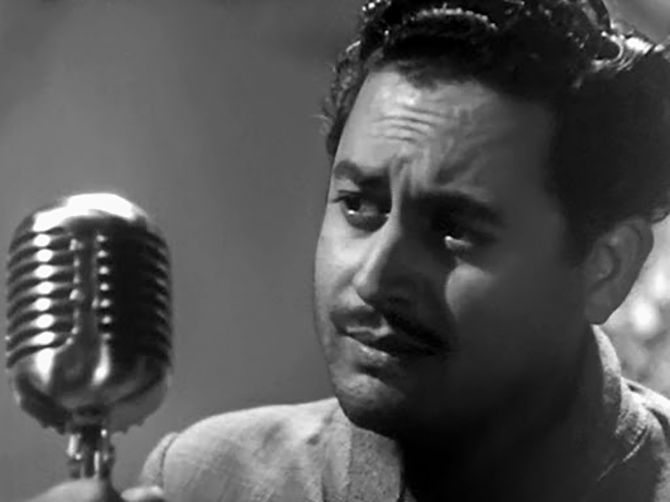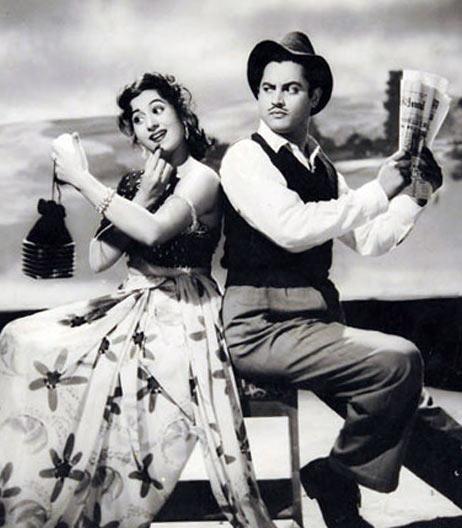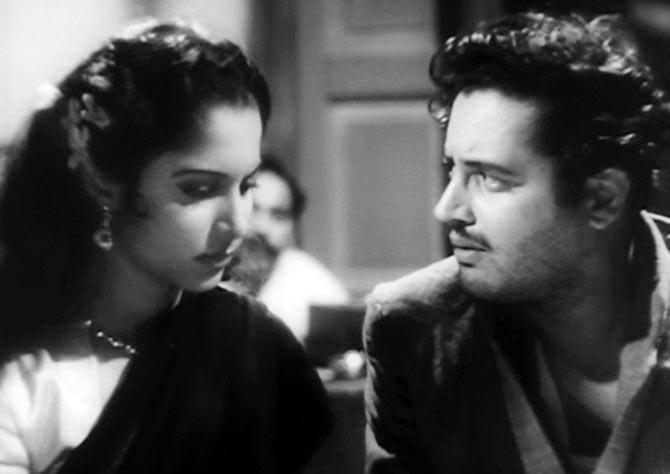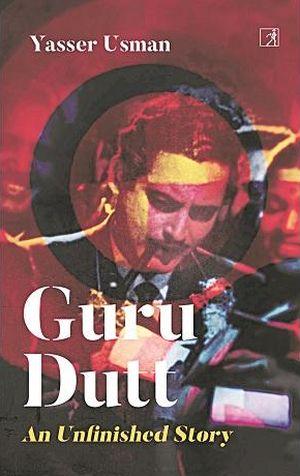'He began to find her boring.'
'She felt lonely and unwanted.'

Yasser Usman holds the rare distinction of writing four film biographies.
After producing books on Rajesh Khanna, Rekha and Sanjay Dutt, he has now turned his attention to actor-film-maker Guru Dutt -- one of the finest talents that Indian cinematic history can boast of.
Guru Dutt: An Unfinished Story is a moving account of a creative genius, who was influenced by Hollywood melodrama, German expressionism, Bhakti poetry, and the Bauls of Bengal.

Dutt's filmography -- which includes masterpieces such as Pyaasa, Kaagaz Ke Phool, Chaudhvin Ka Chand, Mr & Mrs 55, C.I.D., Saheb Bibi Aur Ghulam -- is well-known.
What Usman brings to this book is a fine understanding of the overlaps between Dutt's personal and professional life.
His respect for Dutt's work does not make him shy away from addressing the rift between the actor-film-maker and his wife Geeta Dutt, who was a singer.
Without resorting to gossip, he analyses what hurt their relationship and the toll it took on their careers.

Usman's strength as a biographer lies in unpeeling the layers of their complex universe as fellow artistes and life partners.
The husband's emotional distance and the wife's jealousy were not the only forces at play.
His in-laws felt that he had married Geeta for her money, and this insinuation was deeply humiliating for him.
He, in turn, began to restrict her from singing for films other than his own.
She became suspicious and possessive.
He began to find her boring.
She felt lonely and unwanted.
He disliked her drinking and partying with friends.

What is noteworthy about this book is the fact that Usman resists the temptation to take sides.
He brings in perspectives from various people who were contemporaries of the couple.
On the one hand, Dutt's alcoholism and poor communication skills can be traced back to the unhappy marriage between his parents.
On the other hand, the paucity of affection he grew up with cannot be used to justify the fact that he was violent towards his wife.
Readers who expect Usman to chastise Dutt, or portray his wife as a victim, might be disappointed with this book.
But readers with a history of domestic violence and suicidal ideation might want to consult their therapist before reading this book because some of the descriptions here can be triggering.
With minor exceptions, the writing is effortless and evocative, whether Usman is describing a film set, a haunted house, or a long drive on a rainy day.
He is in control of his craft, and that is why the perfect accompaniment to this book is a playlist of songs from Dutt's films.
They promise to take the reader on a journey that is both melancholic and oddly soothing.
Feature Presentation: Rajesh Alva/Rediff.com











